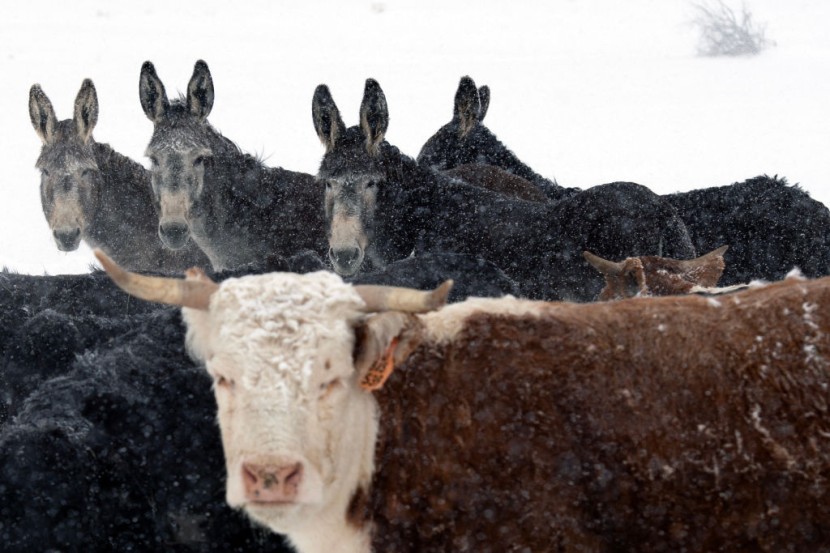Colorado's cattle industry has petitioned a federal judge to block the imminent reintroduction of gray wolves into the state, approved by voters in a 2020 initiative.
Set to commence by December 31, state wildlife officials plan to release up to 10 wolves from Oregon, prompting a swift legal response from two Colorado ranching organizations, as per The Independent.
Colorado Ranchers Challenge Wolf Reintroduction in Court

The Colorado Cattlemen's Association and Gunnison County Stockgrowers Association have taken legal action by filing a complaint on Monday. The complaint is directed towards the US Fish and Wildlife Service and Colorado Parks and Wildlife, as the associations claim a violation of the National Environmental Policy Act has occurred.
In a complaint filed today, it is alleged that the agencies responsible for the wolf reintroduction have neglected to carry out a comprehensive environmental impact statement. As a result, the complainant is urging for a postponement of the reintroduction until the completion of the said process.
The legal action is the first since December 8, when the 10(j) rule of the US Fish and Wildlife Service went into effect, and it classifies gray wolves in Colorado as experimental. This regulation affords greater autonomy to state authorities and livestock producers in the management of wolf populations, encompassing the ability to put to death wolves that are observed engaging in livestock predation.
The lawsuit reflects long standing opposition from ranching organizations that believe wolf reintroduction poses risks to humans and livestock. It adds a new layer of complexity to the already divisive debate between urban residents, who largely support the plan, and rural communities concerned about the potential impact on local economies.
The heart of the complaint lies in whether the judge will permit the reintroduction of the wolf to continue while the legal process unfolds-a process that could extend over several years. The Colorado Cattlemen's Association and Gunnison County Stockgrowers Association argue that their concerns during the three-year process to create a state wolf recovery plan were inadequately addressed, according to USA Today.
Colorado Cattlemen's VP Cautions on Wolf Reintroduction
Erin Karney, executive vice president of the Colorado Cattlemen's Association, emphasized the need for a restrained approach, stating, "A lot of our concerns that we brought up through the wolf management plan hearings were not adequately addressed. Our members are putting our foot down and saying we can't rush these processes. We need to take time."
Defenders of Wildlife, an advocacy group, expressed disappointment in the legal challenge, affirming their commitment to seeing the progress of wolf reintroduction efforts. Michael Saul, the group's Rockies and Plains Program Director, criticized the "11th-hour attempt" to delay the historic return of wolves to Colorado.
The reintroduction plan, backed by a 2020 ballot measure, aims to gradually establish self-sustaining wolf packs in the state. State officials hope that releasing wolves captured in Oregon will eventually result in packs of 150 to 200 animals, addressing the near-eradication of wolves in Colorado during the 1940s.
In the midst of an ongoing legal battle, the future of the gray wolf reintroduction initiative hangs in the balance, as interested parties from opposing perspectives eagerly monitor the developments within the courtroom, The Associated Press reported.
Related Article: Police Arrested Gaza Pro-Ceasefire Protesters After Blocking Los Angeles Highway During Demonstration
© 2026 HNGN, All rights reserved. Do not reproduce without permission.








